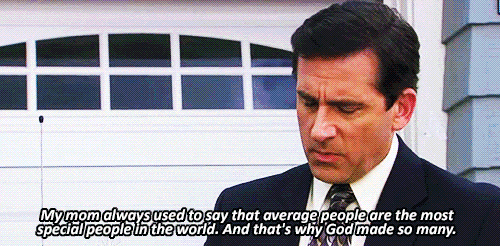I recently read an article shared on Facebook titled “Why Generation Y is Unhappy.”
I was immediately intrigued because I see the unhappiness around me. I see the dead eyes, hear the complaining, and witness the statistics on depression. So why is Generation Y unhappy?
The author claims that they are unhappy for three main reasons. They are wildly ambitious. Generation Y has high expectations that were put on them by the hard work of their grandparents and the unexpected success of their parents. They were told that they could do anything. They are unhappy because they are delusional. Generation Y was told from a young age that they were special—every single one of them, so they enter college and the workplace feeling entitled. Social media taunts Generation Y. Anyone can share their highlights instantly or spend hours crafting an image and their reality is never even known.
Generation Y is my generation. We are the millennial generation, the ones born in the 1980s and 90s. We are the ones who were told to chase our dreams and told we were special. So why are we unhappy?
The author’s right. While I’m not in the workplace yet, I can see the results in my fellow college students. We are wildly ambitious. We pack our schedules and reach for the world’s highest levels of success. We dream big dreams about our future and aim for careers that we believe are meaningful and important.
Yet we can be quite delusional. A few weeks ago I said how I’d like to be the second female NFL coach, and my mother (jokingly, of course) replied, “Sometimes you can be so delusional.” Ok, mom.
We are unhappy because our expectations are better and bigger than our reality. We expect that we will get that six-figure, meaningful, high-profile job right after college. We expect that we will have free time, go on fabulous Instagram-worthy adventures, party hard most nights, and still make great grades… And we are unhappy because those “expectations” are what we see plastered over the walls of our Facebook page and the feeds of our Twitter accounts, without realizing that those aren’t accurate measures of most peoples’ realities anyway.
But I think there is more. Our schools and activities have perpetuated these mindsets. We are told that “participation” is all that matters and working hard just produces inequality. Take my favorite new TV commercial for example.
Thus, we are left in a world where we are told, “everyone can be a winner,” yet we look at our life and think but this isn’t winning, and therefore we are unhappy.
I look at my own life and lives of my friends and I see a degree of laziness. We expect things to be easy, but, more importantly we want things to be easy. We have grown up in an era where we can have all our questions answered with the click of a button. We can have almost anything immediately, or at the very most, just a two days wait with Amazon Prime shipping. We’ve got instant photos, instant food, instant heat, and instant knowledge. But we don’t always have instant happiness. I think we subconsciously expect that happiness and success and dreams will be achieved just as quickly as everything else.
At the end, the author adds a few pieces of advice for Generation Y. Stay wildly ambitious. Stop thinking that you’re special. Ignore everyone else.
I want to add one to the list: Put in effort. I don’t like this one because it is not what I really want. But I also know that the things that I put time, effort, and hard work into are the things in which I find more fulfillment and meaning.
Set aside the expectations that everything will be instant and will be perfect. Life isn’t going to be rainbows and butterflies all the time. The good stuff in life—a well-written paper, a delicious and healthy meal, good friendships, a meaningful relationship, or an impactful career—takes time and work. And I think that we will find ourselves more fulfilled, content, and happy in return.























